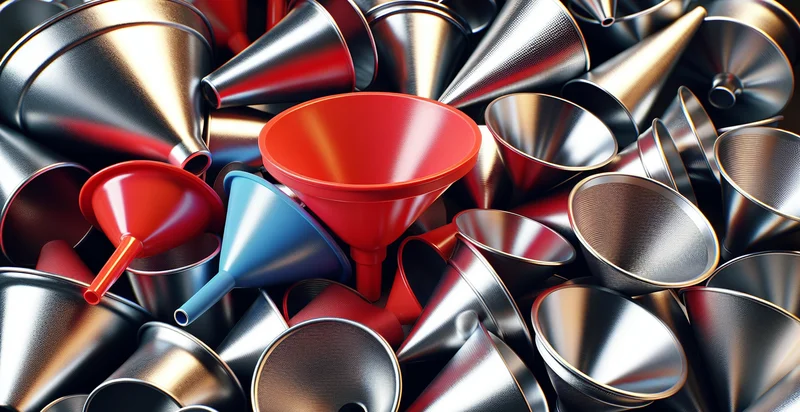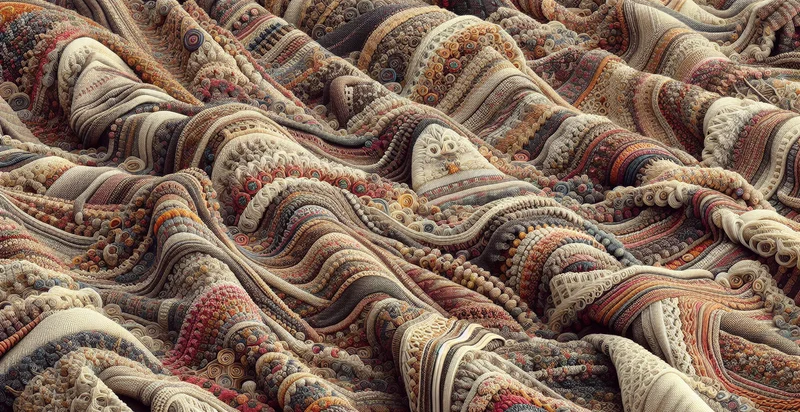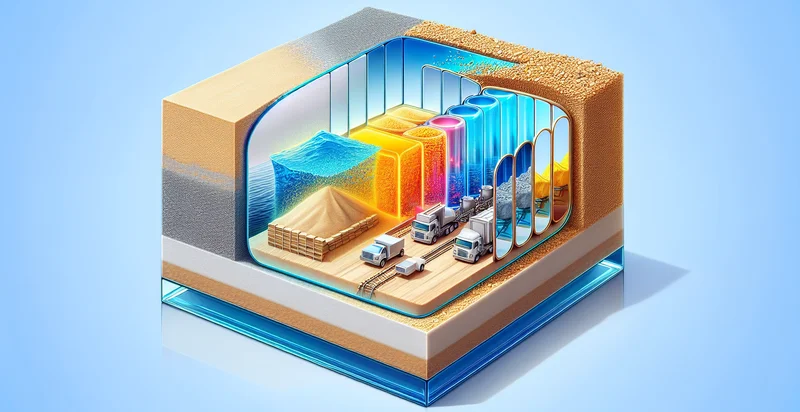Identify what material a funnel is made from
using AI
Below is a free classifier to identify what material a funnel is made from. Just upload your image, and our AI will predict what material a funnel is made from - in just seconds.

Contact us for API access
Or, use Nyckel to build highly-accurate custom classifiers in just minutes. No PhD required.
Get started
import nyckel
credentials = nyckel.Credentials("YOUR_CLIENT_ID", "YOUR_CLIENT_SECRET")
nyckel.invoke("what-material-a-funnel-is-made-from", "your_image_url", credentials)
fetch('https://www.nyckel.com/v1/functions/what-material-a-funnel-is-made-from/invoke', {
method: 'POST',
headers: {
'Authorization': 'Bearer ' + 'YOUR_BEARER_TOKEN',
'Content-Type': 'application/json',
},
body: JSON.stringify(
{"data": "your_image_url"}
)
})
.then(response => response.json())
.then(data => console.log(data));
curl -X POST \
-H "Content-Type: application/json" \
-H "Authorization: Bearer YOUR_BEARER_TOKEN" \
-d '{"data": "your_image_url"}' \
https://www.nyckel.com/v1/functions/what-material-a-funnel-is-made-from/invoke
How this classifier works
To start, upload your image. Our AI tool will then predict what material a funnel is made from.
This pretrained image model uses a Nyckel-created dataset and has 16 labels, including Acrylic, Aluminum, Bamboo, Ceramic, Composite, Copper, Glass, Metal, Paper and Plastic.
We'll also show a confidence score (the higher the number, the more confident the AI model is around what material a funnel is made from).
Whether you're just curious or building what material a funnel is made from detection into your application, we hope our classifier proves helpful.
Related Classifiers
Need to identify what material a funnel is made from at scale?
Get API or Zapier access to this classifier for free. It's perfect for:
- Material Quality Assessment: This use case involves evaluating the material quality of funnels used in food processing. By accurately identifying the material, companies can ensure compliance with safety standards, facilitating material selection for food-grade applications and reducing contamination risks.
- Manufacturing Process Optimization: In manufacturing settings, this function can help identify the funnel material to optimize production processes. Knowing the material properties can influence the choice of tooling, temperature settings, and handling techniques, increasing efficiency and reducing waste.
- Product Discovery in E-commerce: E-commerce platforms can leverage this function for automatic categorization of products. By identifying the funnel's material, shoppers can easily filter search results, leading to a more streamlined shopping experience and increased sales conversions.
- Recycling and Waste Management: This function can enhance recycling efforts by accurately identifying funnel materials for sorting and processing. Waste management facilities can employ this technology to maximize recycling efficiency, ensuring the right materials are processed appropriately and sustainably.
- Compliance and Regulatory Reporting: Businesses that use funnels in production processes can utilize this function for regulatory compliance. By accurately identifying materials, organizations can maintain comprehensive records for compliance audits, ensuring adherence to industry regulations pertaining to material safety and disposal.
- Supply Chain Tracking: This function can be integrated into supply chain management systems to verify funnel materials during inventory checks. Accurate identification allows for better tracking of material usage, inventory control, and contributes to quality assurance across the supply chain.
- Customer Support Automation: Customer service platforms can employ this function to enhance product support. By quickly identifying the material of funnels linked to customer inquiries, support agents can provide precise information, improving response times and customer satisfaction.


